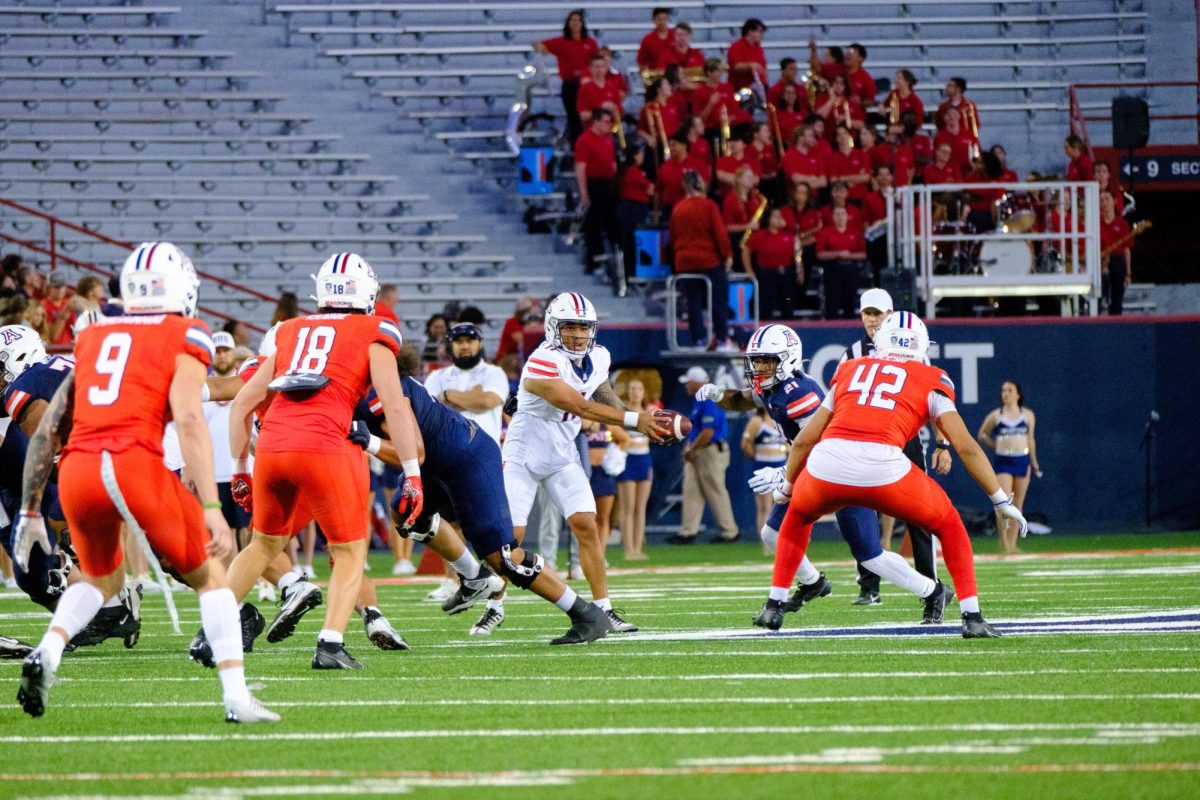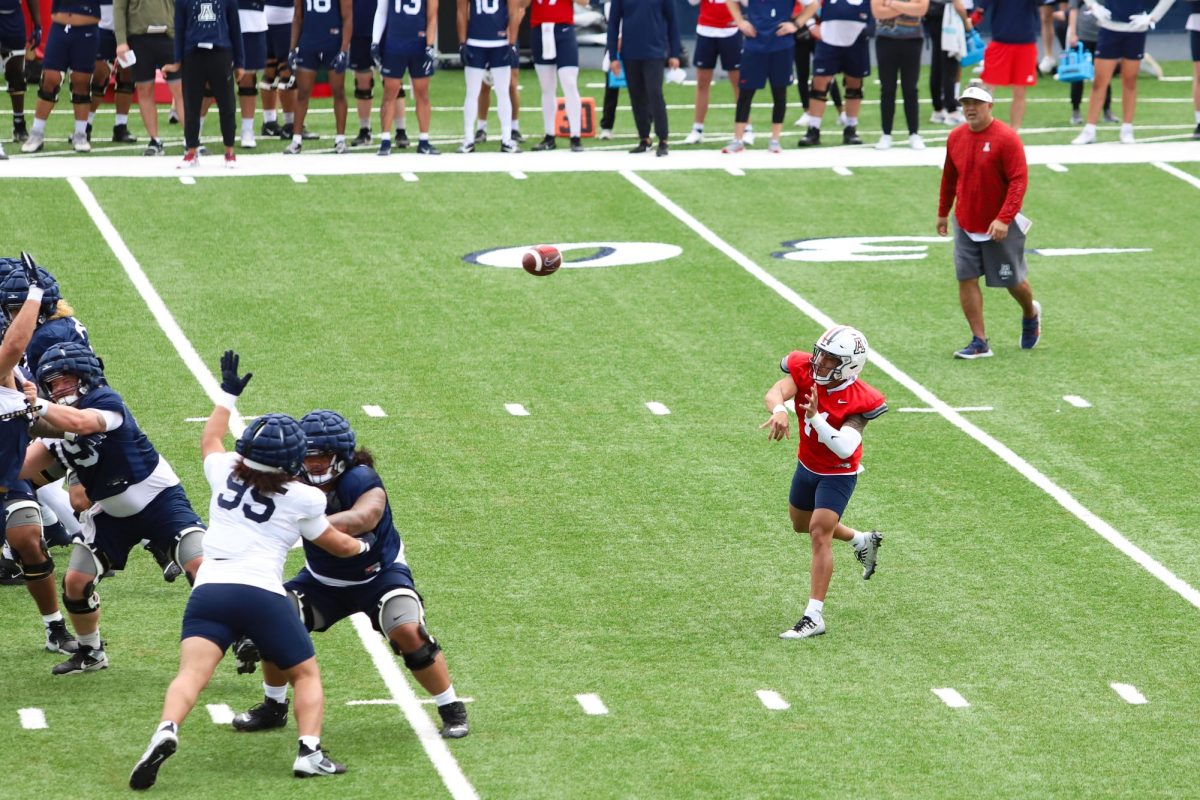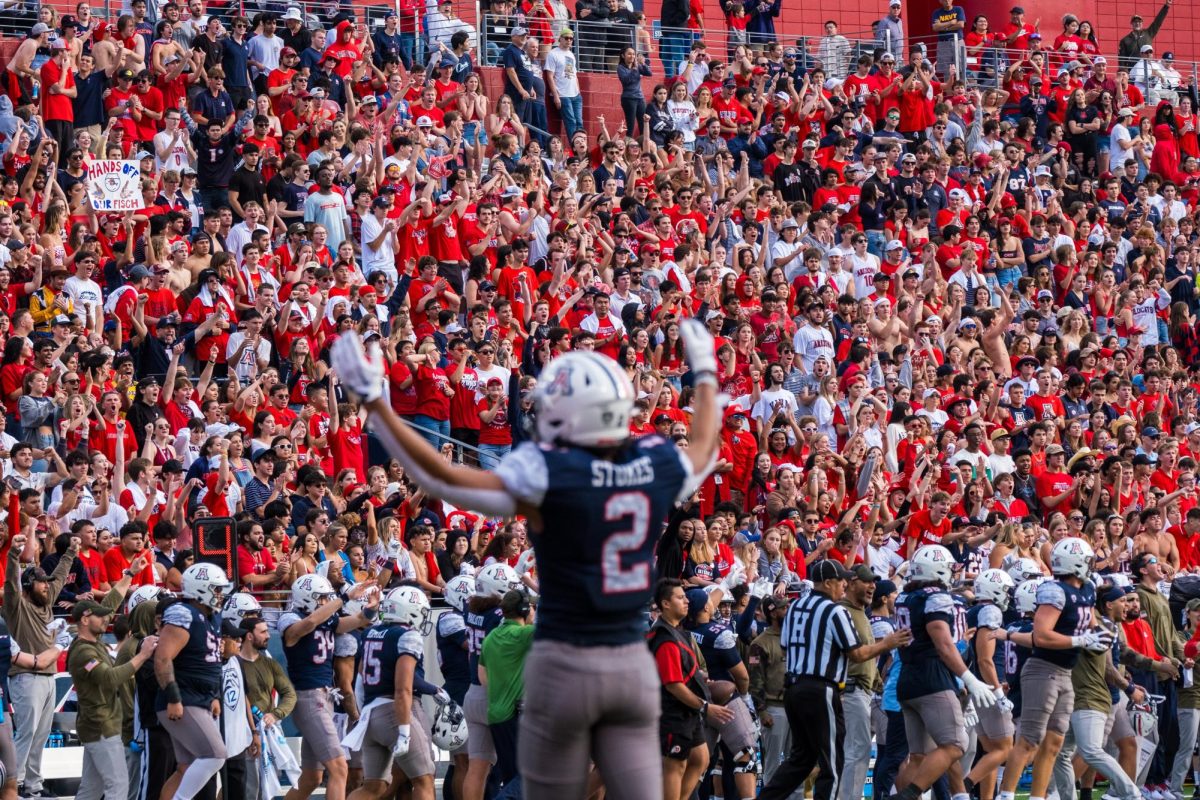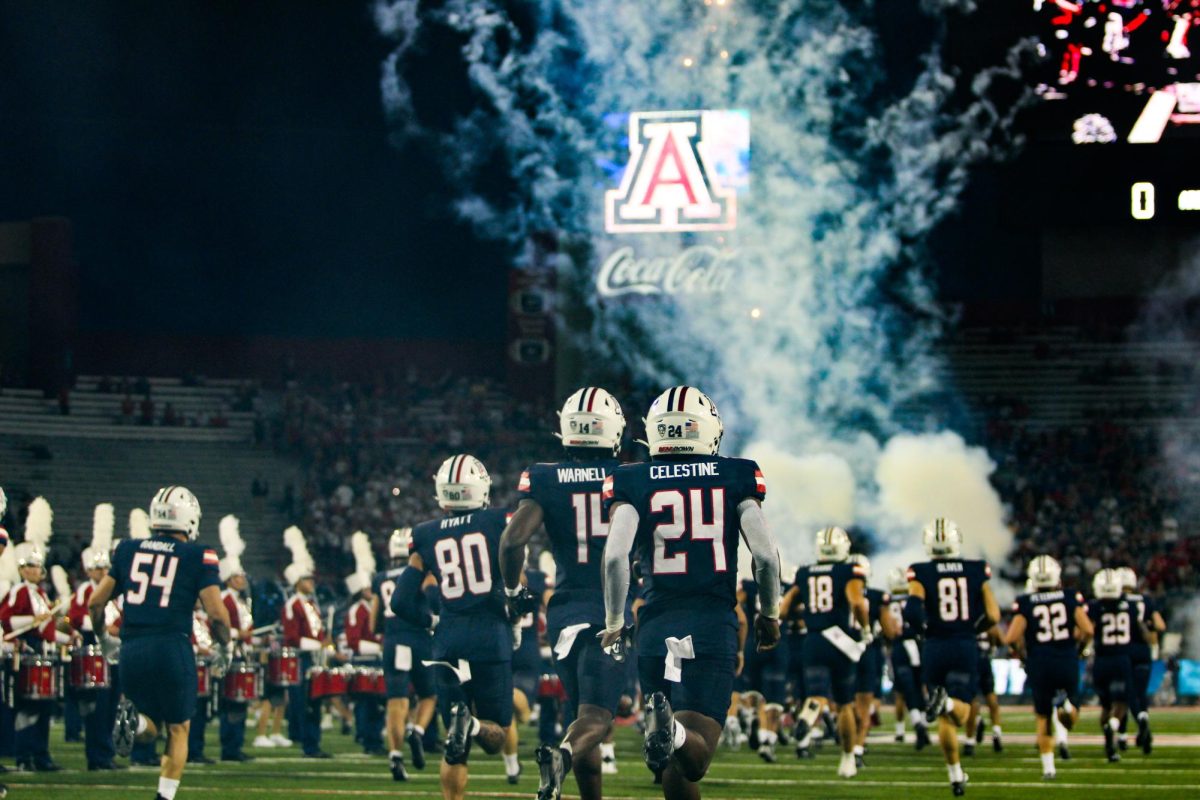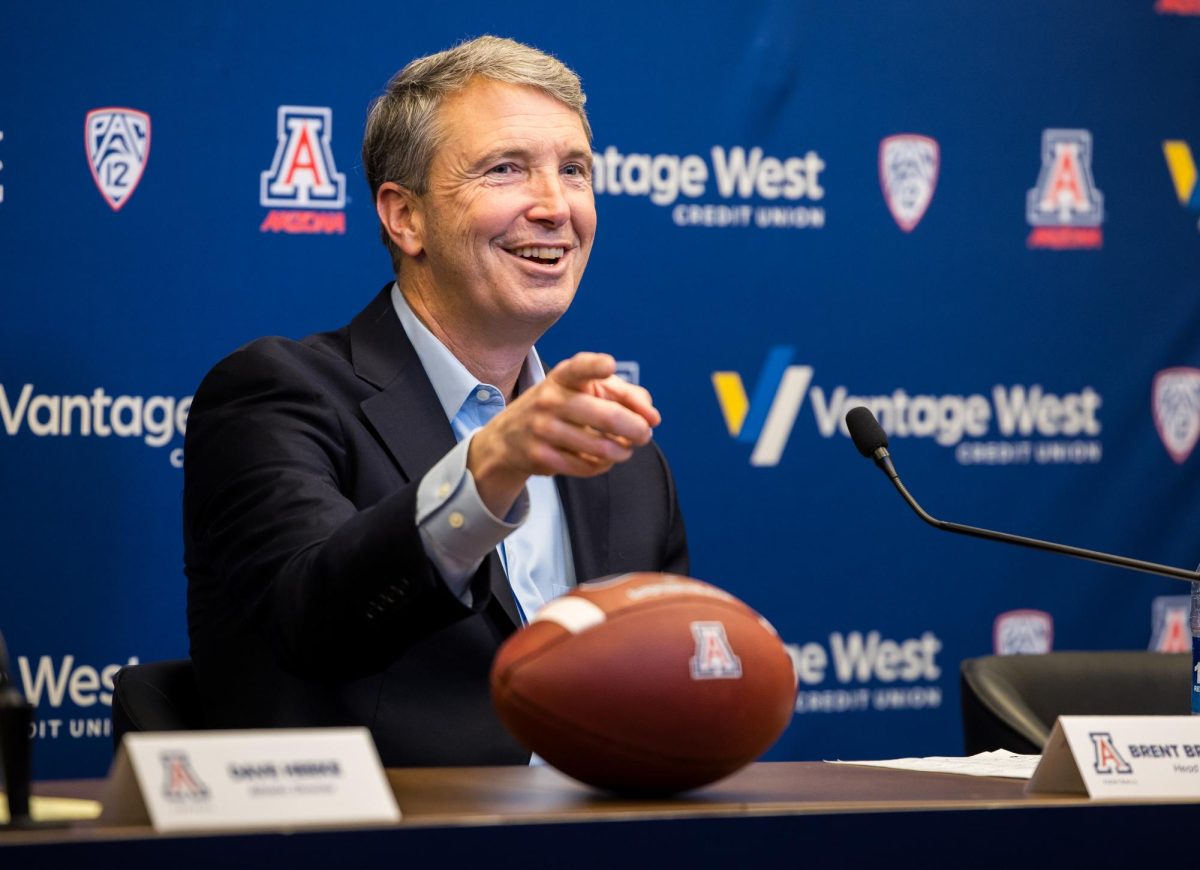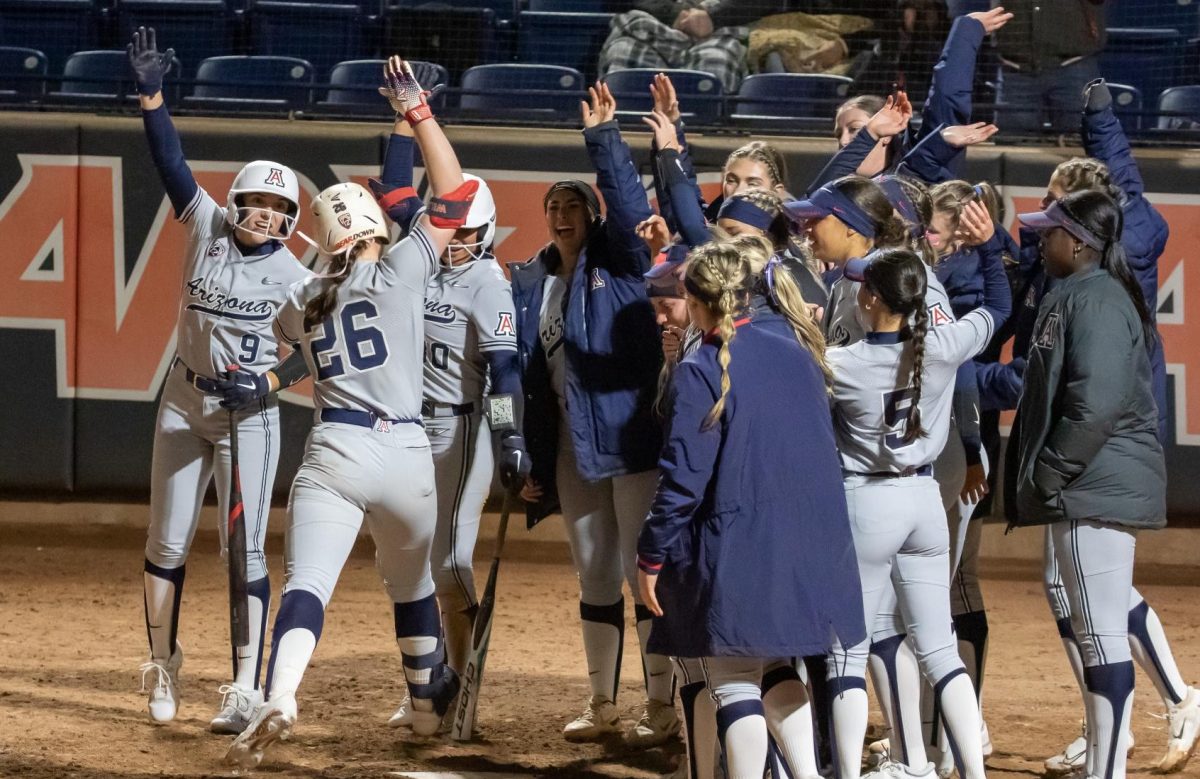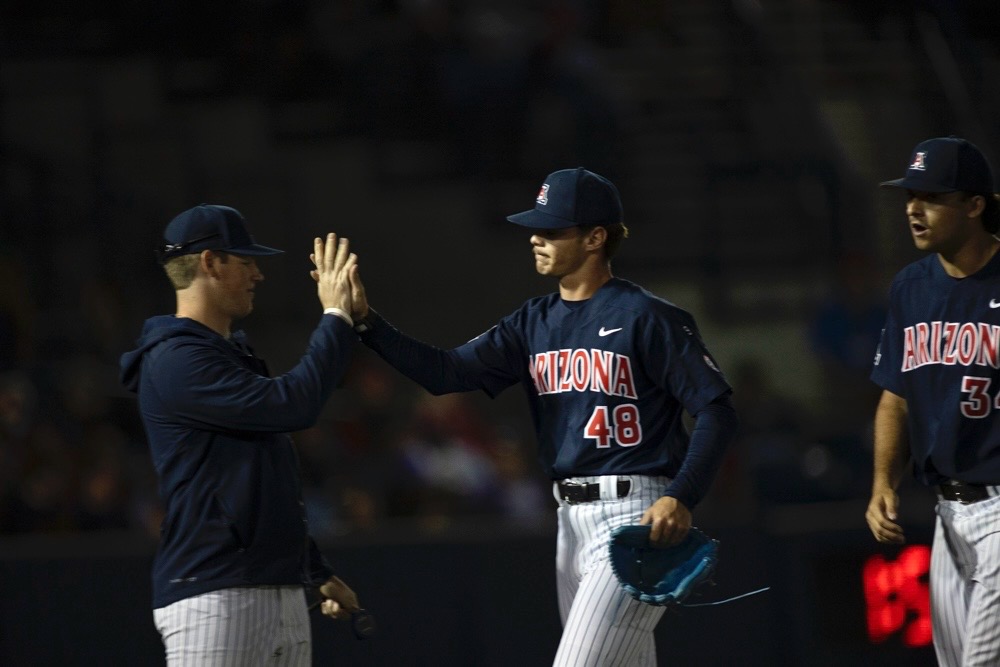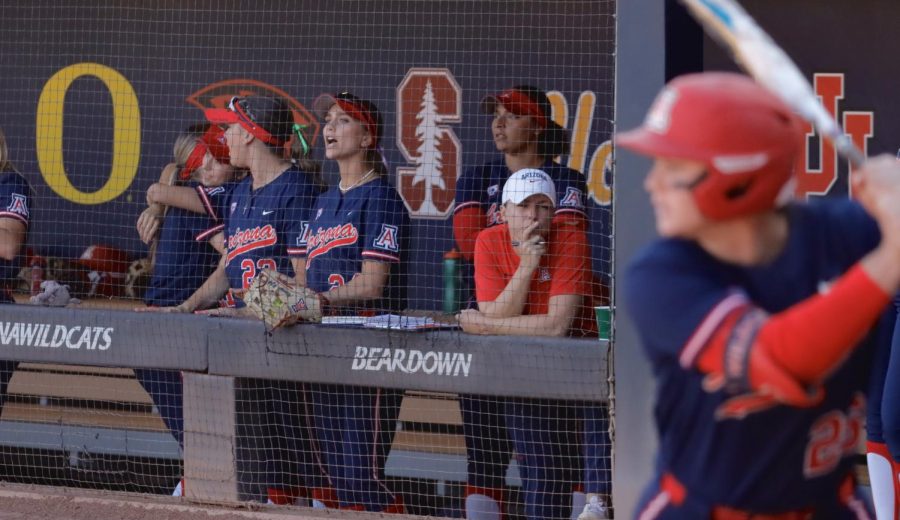Rich Rodriguez needed more time, just one more year at Michigan, and he would have made his mark. Rodriguez is happy to be in Tucson and coaching at the UA, but if he had any say, he’d still be the head coach at Michigan.
His short-lived tenure as Michigan’s head coach was widely disparaged, but Rodriguez’s confidence never waned. Not after the Wolverines won three games his first year there in 2008, or five his second year.
His seat was hot in is third year at Michigan, and many expected his tenure to end early as head coach after two of the worst seasons in Wolverines history. His job was on the line at one of the most storied college football programs in the country. Week-in and week-out, he had to coach in front of more than 100,000 screaming fans at the “Big House,” one of the largest football stadiums in the country, pro or college.
Even with odds stacked against him entering his third season in Ann Arbor, Mich., he stayed strong. He was going to turn the Michigan program around. Which, in a way, he did — he just wasn’t there to see it through. The Wolverines let him go shortly after his first winning season in 2010 and he was relegated to CBS studios as an analyst for the better part of a year. Michigan went 11-2 last year, with a roster filled with players Rodriguez recruited.
“It was hard last year when I was sitting out,” Rodriguez said. “Because, you know, despite my bitter feelings toward Michigan, those were our kids.”
Even as he tried to cope with not being someone’s head coach for 10 months after he was fired, he was still never discouraged. Rodriguez knew he could still succeed at the highest level of college football.
“He has just always been a confident person, he’s had a vision,” Rita Rodriguez, his wife of 28 years, said. “If he believes in something, he believes in it. He really does.”
That self-confidence has followed Rodriguez his entire coaching career, and it dates as far back as 1988 when he was just 25 years old at Salem College in West Virginia. In his first and only season there, the Tigers went 2-8. After the season, the college announced it would be dropping its football program, leaving Rodriguez jobless just two weeks before he was to marry Rita.
“When they dropped football, I was worried about him, you know. He doesn’t have a job now,” Rita Rodriguez said. “He was not worried about himself, he was worried about his football players and where they were going to go to school, so he didn’t spend that time feeling bad for himself. I was selfish, I was worried about him.”
Rich Rodriguez never panicked, though, and it paid off. After a brief stint as the linebackers coach at West Virginia, Rodriguez became the head coach at Glenville State for six years and caught the eye of then-Tulane coach Tommy Bowden, son of the winningest coach of all-time in Florida State’s Bobby Bowden.
“When I became a head coach at Tulane [in 1997] I had him targeted as an up and coming guy that I wanted on my staff,” Tommy Bowden said in a phone interview with the Daily Wildcat. “Track record is awfully important and he had a track record as a head coach. He scored points and broke records, which jumps out at you. I liked his intensity, his teaching method and I liked his personality. He got results, what is there not to like?”
The rest, as they say, is history. Rodriguez parlayed offensive coordinator jobs at Tulane and Clemson under Bowden into his first major-conference head-coaching job at West Virginia in 2001. There, Rodriguez replaced coaching legend Don Nehlen, who actually coached Rodriguez when he was a walk-on defensive back in the early 1980s, so the pressure was on. But just as it was at Salem, Glenville State and Michigan, his first year at his new digs was a struggle, with the Mountaineers going 3-8. It was what he did after that though which eventually led him to secure a much-desired job at Michigan.
In his second season at WVU, the Mountaineers went 9-4 and won at least eight games for the remainder of his five years there, including a Sugar Bowl victory in 2005 and an appearance in the Fiesta Bowl for his last season at West Virginia in 2007. He left for Michigan just prior to the Fiesta Bowl.
At his introductory press conference, Rodriguez joked, “Do you have to be a Michigan man to be a Michigan coach? Gosh, I hope not, they hired me.”
That didn’t exactly sit well with the Wolverine die-hards that had become accustomed to coaching legends like Bo Schembechler and the homegrown coach he replaced, Lloyd Carr. It didn’t get much better from there.
In the midst of what would be his last season in Ann Arbor in 2010, Rodriguez met with Arizona athletic director Greg Byrne for dinner in New York, not to talk about a job at the UA, but simply to hear Byrne’s take on his tenuous situation at Michigan.
“I’d known him a long time,” Byrne said. “We didn’t see each other that often, but we knew each other. I saw … before he had been let go and he asked me to give him some feedback on where he was and what my thoughts were.
“He said to me in that conversation, ‘Greg, I just want to coach this team next year, we’re gonna be good.’”
And he was right, the Wolverines were good. He just wasn’t at the helm to see it through. On Jan. 5, 2011, after a 7-6 finish that included a 30-point loss to the Wolverines’ bitter rival Ohio State and a 52-14 loss against Mississippi State in the Gator Bowl, Michigan fired him.
The next season, on a roster filled with his recruits, Michigan won the Sugar Bowl as Rodriguez went to the CBS broadcast booth as an analyst alongside play-by-play man Dave Ryan.
“I always believed it would work out (at Michigan),” added Rita Rodriguez. “I feel like, had they given us the opportunity, it would have worked … time after time we were told ‘maybe you’re not recruiting the right kids,’ and that always upset us so much because we believed in these kids and we knew they’d be successful, and to this day it’s proven that they have been.”
In his seven years at West Virginia, Rodriguez had an overall record of 60-26 and appeared in six bowls. In that same time span under former head coaches John Mackovic and Mike Stoops, Arizona’s best season included a 6-6 record, no bowl appearances and six losing seasons.
In 2011, Arizona went 4-8 as Stoops was fired mid-season. That’s not exactly the most ideal situation to enter for a head coach.
For Rich Rodriguez? Challenge accepted.
Now at 49-years-old, Rodriguez is looking to make an impact in a big way on the Wildcats’ football program, and he’s aiming high.
His introductory press conference to the UA in November was the first time he had ever been to Tucson, but he avoided joking about his lack of Arizona roots as he did with Michigan. He might not be an “Arizona man,” but Rodriguez is already saying all the right things. He doesn’t just want to win the Wildcats first-ever Rose Bowl, he expects to.
“We want to build the best football program in America,” Rodriguez said. “I think any head coach would tell you that, but I want our players to get the most out of their experience as a student athlete at the (UA). I want them to achieve as much as they possibly can as an athlete, as much as they possibly can as a student and grow as a person. If we do that, then we’ll have a better team and a better program.
“When they’re done getting their degree and they’re done playing football at Arizona, they can look back and say, ‘I played at the best football program in America.’”




